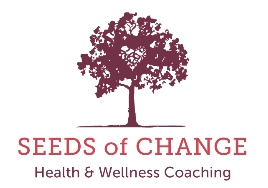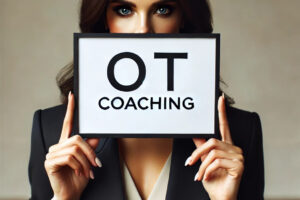You are really smart. You are pretty successful in most areas of your life. Yet, there are one or two areas that just aren’t quite working the way you wish. You know what you need to do intellectually, but you can’t seem to get yourself to do it. It might be eating healthier or exercise. It might be saving money, changing careers or having better relationships. You have great intentions to make changes, yet often, nothing changes. It is now a new year, filled with hope and possibility. You declare, “This year will be different!” Or will it?
If you find yourself with good intentions but little change from year to year, you’re definitely not alone and you are definitely not crazy. This is actually most people’s experience. Sustainable change is tricky. Success–quite literally—is all in your head, but it has nothing to do with willpower. In fact, it is just the opposite. Remember in the movie “The Wizard of Oz” there was the man behind the curtain running the whole show? It’s a little like that. Let me explain.
First: a brain anatomy lesson: Inside your brain, you actually have three separate brains, not just one: your cerebellum & brain stem are in charge of keeping you alive: breathing, heartbeat and anything out of your conscious control. Your neocortex is your logical, or conscious brain—you do all your thinking, reasoning and creative thought here. Your conscious brain is what makes New Year’s resolutions and promises to make healthy choices. It has great intentions. The limbic system, which is your emotional, or unconscious brain, is where the good intentions get stuck. The unconscious brain runs purely on survival instincts. Very simply: it moves us toward pleasure and away from pain. It moves us toward safety and away from danger. If your limbic system senses danger or discomfort, it will propel you in the opposite direction.
For example: If you are making sudden, drastic changes to your life, diet or exercise regime (which is what most people do around January 1st), you might only get a few days into your routine before your limbic system detects a serious threat to your survival. Suddenly, your string of positive, healthy choices comes to a screeching halt and you find yourself back on the couch or sitting with a bag of potato chips asking yourself “how did I do this again?”
The way to over-ride the emotional brain from taking over is to make very small changes. Like, really, really small changes—so small that your unconscious brain does not detect a threat. How do you know if your changes are small enough? You have consistency. If you become inconsistent, then, chances are you are taking on too big of a change and you need to bring it down a notch or two.
Some questions for exploration & discovery: Ask yourself: What is the smallest change I can make to my eating that I am willing to make right now? What is the smallest action I can take right now to get my body to move more? What is one thing I can do to take care of myself today? What is something I can do today that will be fun & enjoyable to me?
Change is not easy. A life coach can support you with moving from where you are now to where you want to be. As a life coach, I am trained to support you through the internal emotional & psychological change that must come first before you can make lasting physical change.
For more information and to schedule a free 15 min complimentary coaching call, visit www.seedsofchangecoaching.com



